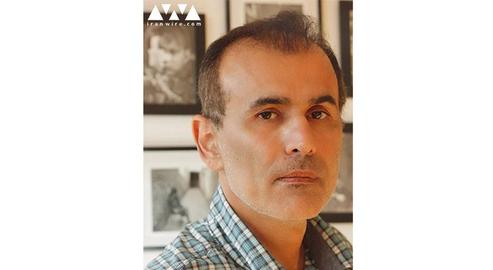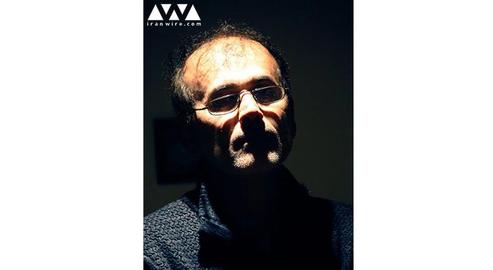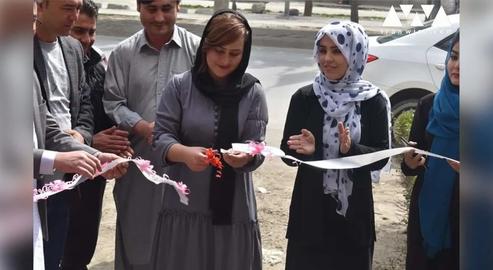The below is an archived article first published by IranWire on February 16, 2021. It has been republished as part of our new series on transnational repression. Read more about the project here.
Mehrdad Arefani has been sentenced to 17 years in prison by a court in Antwerp, Belgium for his part in a bomb plot targeting attendees at a meeting of Iranian dissidents in Paris. Prior to this seminal judgment, Arefani was best-known to many as a poet – and certainly not as an agent of the Islamic Republic planning terrorist attacks abroad.
Arefani and a third accomplice worked directly alongside Assadollah Asadi, the third secretary of the Islamic Republic's embassy in Austria, who spearheaded the operation and was recently sentenced to 20 years in prison.
This is my account of a man I once considered to be a simple, impassioned poet. In this narrative I emphasize that I believe in the Belgian judicial system and consider the court's decision to be an impartial one in the ongoing fight against terrorism.
***
It was about 10 years ago that, alone and without money, without the language to so much as tell the left and right hands apart in French, I first met Mehrdad Arefani – on the second day I set foot in Belgium. We had heard one another's names in Iran and recited poems to each other.
I was from the south and Mehrdad was from the north. In addition to poetry, the beach lifestyle was our second common denominator. I was a stranger and naive, and Mehrdad, so he told me, was alone. Through literary interactions, we became close. Just a few days later he found me a house and I lived there without a contract. No need, he said, the landlord is an Iranian and a friend.
He spoke of "radical poetry" and writing a manifesto for radical poetry. We drank for hours and talked, and sometimes fought. Then after a few hours, like a child who forgets to be upset after a time, one of us would text the other.
About two weeks into my stay in the new country, he announced that some opponents of the Iranian government had staged a demonstration in front of the parliament's administrative building in Schuman Square. "Are you coming for a photoshoot?" he asked.
I was young in those days and full of revolutionary passion. I thought I should vent my anger either way. I was alone and needed acquaintances and friends. What could be better than going along, taking photographs and socializing with other Iranians who were all against the Islamic Republic?
So I accepted the invitation and left home. I was excited; in truth, it was the first time I saw the Iranian "Lion and Sun" flag. That night Mehrdad took the photos. A few days later, another demonstration took place and I went along again at his request. I do not know where the photos were published or indeed whether they were published at all, but I posted a photo on my own Facebook page.
The day after the second demonstration, Mehrdad and I went to a building in Brussels. The people there were the same ones that had taken part in the demonstration. I was nervous at first, but atmosphere in this building was special, and silence and order prevailed.
The next day, Mehrdad and I went back to that building. I don’t remember why, but we did. He said Sister So-and-so wanted to see me. I was surprised, and I said to Mehrdad, "Are you not a leftist? Don't you use ‘Comrade’ instead of ‘Sister’?” And he said, “I’ll tell you later."
Sister So-and-so sat down in front of me and started talking about the Quran, true Islam and the ideal society. With the same temperament that I have retained to this day, I quickly lost my patience and left before getting into a fight.
That night, a friend sent me a message on Facebook: "Mohammad, have you started working with the Mojahedin [the MEK]?"
In response to my startled reaction, in which I called the question ridiculous, he said: "Look at the photo you posted on your Facebook page. Look at the flag!"
I wrote: "Are you aware I don’t care about the flag? Do you expect the people of the Islamic Republic to not raise their flag during anti-Islam demonstrations?"
"This is the flag of the Mojahedin,” he wrote. “It’s very different from the flag of the Lion and Sun.” He sent me two pictures of the flags to compare.
I was afraid. I have always been afraid of the Mojahedin. I deleted the photo and the next day I told Mehrdad that these were the Mojahedin!
"Who cares?” he said. “Do your job. Take the pictures and take your payment for the photography. They’re powerful and they will support you."
We talked a little longer and were verging on an argument before the subject shifted to poetry, and the matter was forgotten.
Once, I went to Mehrdad's house for lunch. His wife and daughter were also present. We ate together and they recited poetry from their adolescence in Iran; we ate, laughed and shared poems together.
A few days later, Mehrdad called again. He always came with a few bottles of beer. But that day he told me that Mohammad Shams, the composer and conductor of Marzieh’s [a famous Iranian traditional singer] orchestra in Brussels, had made an appointment with me.
Wow! Me and Mohammad Shams? How exciting! For me, an Iranian who found Marzieh's voice singular, meeting Mr. Shams was a thrilling opportunity. We went to that same dreadful building, with its many doors and multiple exits that opened onto several different streets, and I got nervous on seeing it. I shrugged and swore. His reaction was: "Mohammad Shams is with the Mojahedin-e Khalq. Come and see Mohammad Shams. Why do you care about him being with the Mojahedin?"
The name of Mohammad Shams came up again. I, young and crazy about Marzieh's voice, gave in and entered the building. We talked, laughed and drank tea. But again the conversation was dragged toward Sister So-and-so, so I got up and took my leave.
A few days later I moved out of the house provided by Mehrdad. The landlord turned out to be an activist in the MEK too and having confronted them, I had to leave.
Mehrdad was constantly present at the MEK’s various meetings and gatherings. He even went to America with them once for a demonstration. When dealing with them, he was decent and a good listener, while among his friends and comrades in other groups he was a rebellious leftist.
My relationship with Mehrdad now came down to meetings once a week or once every two weeks. We had a dispute on the subject of radical poetry. He consulted with me several times to design the layout of his books. At that time, IranWire had just started publishing and I was one of the first writers for this outlet, which has now become my home after close to nine years. Several times I asked Mehrdad to get involved in the special reports – to do something and say something instead of grumbling. But he refused. His words to me were: "You are all men of the government; they are guiding you without you knowing it."
Later, due to my frankness and sharp rebuttals, we got into fights over several issues and had no contact for several years.
Mehrdad was friends with most of the political activists living in Belgium. He installed software for many of them because they did not know much about computers. He also carried out repairs for a number of Iranian property owners. He was a cameraman at all the MEK gatherings, and he considered Austria the most beautiful place in the world. It was impossible for us to meet without the conversation turning to Austria. Among the Iranians living in Belgium, he was known as a quiet and harmless man. He wore ordinary clothes and compared to the other Iranians who followed fashion, he was extremely simple – even clumsy.
One day will I was living in Paris, after a few years without any news from Mehrdad, he sent me a message telling me his book had been translated into French. He would be presenting the book and reading poetry in a certain hall. I went along out of politeness, but neither was I the same "Mohammad" and nor was our relationship the same. We exchanged smiles and greetings based on compulsion and respect, he thanked me for coming, and I had no more news until I became a resident of Belgium again.
There, he came to my house once or twice. I was no longer young or blindsided by living in Europe; Mehrdad no longer talked about radical poetry and literature at all. We tried not to get into the subject of literary criticism.
Then in the last days of his freedom, I saw Mehrdad's number on my phone and picked up. He was screaming with stress and agitation. He was involved in a family dispute. Finally, he said he had left the house, and he wanted to come to my house.
I frankly told him no. "I don’t like to be involved in family disputes at all. Please resolve the issue by yourself and then call. I will gladly invite you to my house for coffee or wine."
Two weeks later, while drinking coffee myself, I read the headlines and saw the name of Mehrdad Arefani. Before Mehrdad's name, the words "terrorist operation" were printed. I laughed and called a colleague, who was the shift editor. I said with mirth that they had misspelled the name of this poor guy and if he read it himself, he’d have a stroke! He is a coward and a poor man, I said. Fix it before his blood lands on your hands.
I hadn’t yet finished talking and joshing when that colleague interrupted me. "Have you just woken up?" he said.
"Yes,” I said. “I was a night owl and just woke up. What does that have to do with it?"
"Drink your coffee and read the French news agencies," he said. "The name is correct. He is an agent of the Islamic Republic and he has been arrested in connection with a terrorist operation."
I was shocked. I laughed some more. Then I called a few friends, and they too were astonished. That day, I opened up all the electrical sockets in my house. I even opened up my toilet cistern and examined everything inside. Mehrdad had done some maintenance on my new place, before I rented it, and had again introduced me to the landlord.
For several weeks, every political activist I met in Belgium insisted: "It’s a mistake. He didn’t even have bread to eat." A number of naive Iranian activists even wanted to raise the money to hire him a lawyer. But the court later noted that more than 200,000 euros had been confiscated: money that Mehrdad Arefani had received from Asadollah Asadi.
Given that prisoners in Belgium can access social networks and internet news sites, I hope that one day Mehrdad will read this note, and let me know if he is willing to talk to my media outlet now?
This time, my questions will not be about literature.
Related coverage:
Unprecedented Remarks by an Iranian Diplomat about Terrorist “Rogue” Elements in Europe
Verdict on Iranian Diplomat to be Issued in Belgian Court Next Week
Iranian Diplomat Jailed for 20 Years Over Foiled Bomb Plot
Iran’s Intelligence Ministry has a History of Terrorism in Europe
visit the accountability section
In this section of Iran Wire, you can contact the officials and launch your campaign for various problems


























comments